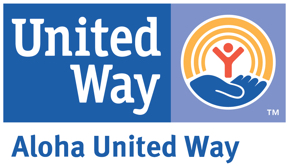
May. 22, 2024
ALICE in Hawaiʻi 2024 Update
In Hawai‘i, many families and individuals live above the poverty line but still struggle to afford the essentials for a basic quality of life. Known as the ALICE (Asset Limited, Income Constrained, Employed) population, these working households are facing increasing financial pressures as the cost of living rises. The 2024 update of the ALICE report sheds light on these challenges and provides critical insights into the financial stability of Hawai‘i’s working families. By exploring updated survival budgets, the impacts of tax credits, and the unique struggles of specific communities like Native Hawaiians and Pacific Islanders, this report calls for targeted actions to ensure economic stability and growth for all.
Updated Survival Budget for ALICE Households in Hawaiʻi
The latest ALICE report updates the Survival Budget based on 2022 census data, highlighting a significant increase in the cost of living. The new budget emphasizes the crucial role of tax credits in supporting working families and showcases the adverse effects felt when these credits end.
- 2023 Survival Budget (using 2021 data) for a family of four (two adults, two young children): $85,812
- 2024 Survival Budget (using 2022 data) for the same family: $99,552 (a 16% increase)
- 2023 Survival Budget for a single adult: $36,912
- 2024 Survival Budget for a single adult: $39,384 (a 6.6% increase, equating to $19.69 per hour)
For context, the average wage for a single earner in Hawai‘i is $52,734, or $25.35 per hour, while the current minimum wage stands at $14 per hour.
The Critical Role of Tax Credits for ALICE Families
The data underscores the pivotal importance of tax credits for working families. The expansion of Earned Income Tax Credit (EITC) credits in 2023 was a significant step forward for ALICE households. Moreover, new tax breaks set to become law for the 2024 taxes will offer additional support to working families.
Challenges for ALICE Families with Children
The report highlights a troubling reality: raising a family with children has become exceptionally difficult, especially for single parents. Many working parents are frequently forced to choose between earning an income and providing care for their children due to limited childcare options. This often results in reduced working hours and decreased income, exacerbating financial hardships.
Disproportionate Impact on Native Hawaiian and Pacific Islander ALICE Population
Native Hawaiian and Pacific Islanders (NHPI) are particularly affected by the current economic climate, with 57% of NHPI households falling below the ALICE threshold. This statistic points to the need for targeted interventions to support the economic mobility and counteract the racial disparities that persist through both historic and current systems.
Inadequate Wage Growth Emphasized by ALICE Data
Despite Hawaiʻi's gradual increases in minimum wage, the data reveals that these increments are insufficient to meet the current survival budget of $19.69/hour for a working adult. Our State's intention to move to an $18/hour minimum wage by 2028 needs to be accelerated to match our economic reality, which suggests that $20/hour by 2025 is needed to prevent 44% of Hawai‘i's households from falling into dire economic hardship.
The Takeaway from the 2024 ALICE Data Report
This updated data presents a clear picture: while steps have been taken to alleviate some of the financial burden on ALICE households, more aggressive policies and support systems are essential to create a viable pathway out of financial distress for many families in Hawai‘i.
For additional tools, resources, and interactive data breakdowns visit the United For ALICE website:
- Hawaiʻi State ALICE Overview - Learn more about the ALICE population in Hawaiʻi
- Economic Viability Dashboard - Explore data on work, housing, and community resources for households below the ALICE Threshold by location and race/ethnicity
- Legislative District Tool - An interactive tool that helps policymakers and community stakeholders better understand how many ALICE households are actually struggling in their district
To learn more about how Aloha United Way is working towards a better future for our local ALICE families, visit AUW ALICE Initiative.
